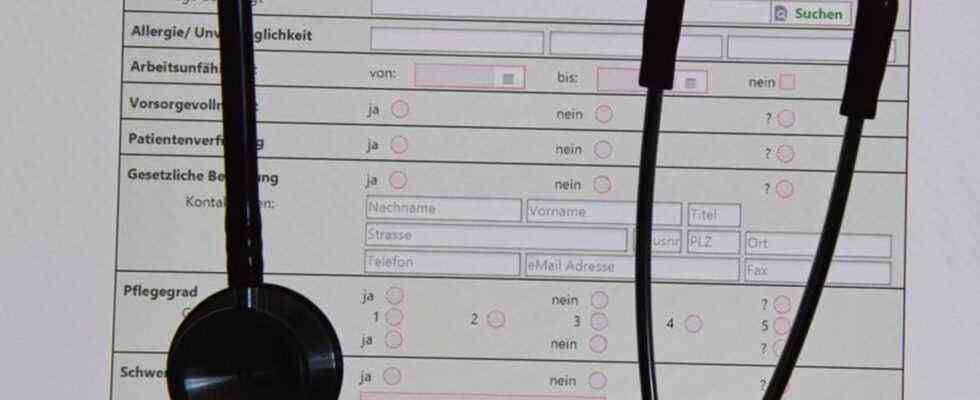Healthcare
More boost for the e-patient files
The e-file for 73 million people with statutory health insurance started a test phase on January 1, 2021. Photo: Stefan Sauer / dpa
© dpa-infocom GmbH
After a long turmoil, the healthcare system is set to become more digital. An electronic file for cell phones was launched a year ago. Will it get more revved up with some innovations in 2022?
X-ray images, medical reports, medication lists: for a year now, insured persons have been able to have digital health data ready – in electronic patient files (EPR), which can be called up on smartphones. They should get more functions in 2022.
Consumer advocates and health insurance companies are relying on even more digital boost. This is also the aim of the new federal government made up of the SPD, FDP and the Greens. According to the coalition agreement, the “opt out” principle should apply to the voluntary use of e-files in the future – that is, you have to actively object if you don’t want to use them.
The head of the Techniker Krankenkasse, Jens Baas, told the German Press Agency: “In order to increase acceptance, it is the right step that every insured person automatically receives the file at birth and that a lifelong health history is built up. If you don’t want that, you can object at any time. ” The current “opt-in” principle unnecessarily puts obstacles in the way of users through a multi-stage approval process. “But then it is crucial that the doctors fill in the files,” said Baas. And the prerequisite for this is that all practices and clinics are technically capable of doing this.
However, there are still delays in the planned area-wide networking of the EPR due to a lack of equipment in some cases. Practices need updates for a connection device (connector) to the protected data highway of the health care system, as the Federal Ministry explains. According to the manufacturer, these have now “largely” taken place. For the necessary updates of the practice management systems, however, some manufacturers “did not complete the development in time”.
The e-file as a voluntary offer for the 73 million people with statutory health insurance started with a test phase on January 1, 2021. “The previous user numbers still have a lot of room for improvement,” said the head of the Federal Consumer Association (vzbv), Klaus Müller, of the dpa. Many applications can thus be launched more efficiently, in the interests of patients, but also of the health care system – for example, which drugs go together. The “opt-out” principle planned by the SPD, Greens and FDP is okay in this constellation, as there is the possibility of self-determined decisions.
At the Techniker Krankenkasse one year after the start, 230,000 insured persons use the e-files, as the company announced. It is used most strongly among 26 to 35 year olds with 28 percent. Reminders of preventive medical check-ups or downloading existing data on vaccinations, prescribed medication and visits to the doctor are particularly popular, so as not to start with an empty file.
Consumer advocate Müller generally emphasized that patients had to remain masters of their data. In addition, the system must be secure. “It is nobody’s business what allergies I suffer from, what medical history I have.” It is important to be able to decide which data to make available to which doctor. From the new year onwards, patients should be able to define this in a more refined form for each individual document. Privacy advocates had warned about this.
“The benefit for the patient must now finally come to the fore,” said Müller. For this purpose, new functions of the ePA are to come in 2022: the maternity card, the yellow examination booklet for children, the tooth bonus booklet, the vaccination certificate. The planned second expansion stage of the app should go to the start from January 1st, explained the ministry. For this, too, practices have to meet technical requirements.
The previous introduction is not a sheet of fame, and many have contributed to it, said vzbv boss Müller. “The resistance from the medical profession is one that the profession should think about very self-critically.” There is frustration among doctors after the former minister Jens Spahn (CDU) forced several digital applications after years of turmoil. Medical President Klaus Reinhardt recently complained of frequent malfunctions and a lack of technology and demanded: “Get out of the hasty digitization”. For the time being, you should concentrate on testing applications extensively for practicality and actual utility benefits.

